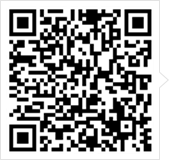
http://www.hteacher.net 2019-08-06 09:17 教师招聘网 [您的教师考试网]

同学们,情态动词在我们招聘考试中屡次出现,而其基本用法比较纷繁复杂,所以,今天我给大家梳理一下部分情态动词的基本用法。
一、情态动词的特点
情态动词,又叫情态助动词。它们具有以下特点:
⑴它们必须与其他动词连用,即:情态动词+动词原形,表示说话人对所述动作的看法,如需要、可能、意愿或怀疑等。
⑵绝大多数情态动词没有人称和数的变化,即第三人称单数不加-s(以be和have 开头的情态动词短语除外)。
⑶在意义上,情态动词具有―多义性。例如:can既可表示能力,又可表示可能、允许等意义。
二、部分情态动词的基本用法
1.can的基本用法:
⑴表示体力或智力上的能力,即―能够,会,可与be able to转换。
如:he can speak english. / he is able to speak english. 他会讲英语。
如果表示将来具备的能力,要用will be able to。
如:if i have a good sleep, i will be able to do the problem. 假如我睡个好觉,我就能做那道题目了。
⑵ 表示许可,主要用于口语,书面语一般用may。
如:can we go home now, please? — no, you can’t. 我们可以现在就回家吗?
⑶ 表示―可能,与may同义,但一般用在疑问句中。在否定句中,否定形式can’t表示推测―不大可能。
如:anybody can make mistakes. 任何人都可能会犯错误。
the news can’t be true. 那消息不大可能是真的。
2.may的基本用法:
⑴表示―许可,用can比较口语化。
如:you may / can come if you wish. 如果你想来,你就来。
you may not pick flowers in this park. 本公园内不许摘花。
(may not表示按规定不许可,如果用mustn’t则表示说话人不许可。)may i smoke here? no, you mustn’t. 我可以在这里抽烟吗?不行。(mustn’t表示明确的禁止。)
⑵ 肯定句中表示推测,―可能。
如:it may rain tomorrow. 明天可能会下雨。
the news may not be true. 这个消息可能不会是真的。
(注意:如果在疑问句中表示―可能,通常用can。例如:can it be true? 那会是真的吗?)
⑶ 注意:may i/we……?yes,you may. no, you mustn’t.
3. must的基本用法:
⑴ 表示必须,强调说话人的主观意志。
如:I must go now, or I'll be late. 我必须现在就走,否则就迟到了。
you must be here by ten o’clock. 你一定要在10点钟前到这里。
(注意:表示―必须―时,must的否定式为needn’t,或don’t have to ,而不是mustn’t)
⑵ 表示推测,一般只用于肯定陈述句,表示非常肯定。
如:she didn’t look at me. she must be angry. 她不朝我看,一定是生气了。
he is good at english. he must know the word. 他英语好,准知道这个词。
you must be mr. jones. 想必您就是琼斯先生吧。
4. have to的基本用法:
have to可视为情态动词,但它与其他情态动词在用法上稍有不同。其他情态动词没有人称和数的变化,而have to却要视主语的不同而变化, 又作have got to,意思是―必须,不得不。和must不同,must强调主观需要;have to强调客观需要。
如:sorry, I have to leave now. 对不起,现在我得走了。
1) 情态动词must及其否定形式
must not must 译为“必须做------”其否定意义“不必做-------”,用don`t have to 表示,而不用must not 。
如: ——must ifinish it tonight? ——no, you don`t have to.
must not 译作“禁止做--------”。
如: you must not throw litter about. don`t throw litter about.别到处乱扔垃圾。
2) 情态动词may
表示请求允许,译作“可以”。
如: may i come in ?我可以进来吗?
表示推测,译作“可能”。如: you may get a headache when you work too hard.当你工作太累时你可能回感到头疼。 you may get a headache when you can`t get enough sleep. 当你睡眠不足时,你可能会头疼。
三、课堂练习:
1.—hello! may i speak to mary? —_______
A. I'm mary. B.mary is me. C.this is mary speaking. D. I'm speaking.
2.my mother asked you _______ when you come back.
A.ring up her B.ring her up C.to ring up her D.to ring her up
3.you should _______ when your parents aren’t at home.
Alook yourself after B.take care for yourself C.take care yourself D.take care of yourself
4.—may i ask you some questions, dr. wang? —_______
A.you’re welcome. B.sure, go ahead. C.no, i’m busy. D.yes, you must.
5.—must i take part in the activity? —no, you _______. you’re too young. you should look after yourself.
A.mustn’t B.don’t C.can’t D.don’t have to
6.—who taught _______ japanese? —i learned it by _______.
A.you; myself B.your; myself C.yourself; me D.yourself; myself
情态动词还有一些特殊用法,我们下篇内容继续

责任编辑:大白

下一篇: 公文标题一般由( )组成
公众号

视频号

小红书

小程序

APP

京ICP备16044424号-2京公网安备 11010802023064号 Copyright © 2001-2024 hteacher.net 北京中师华图文化发展有限公司 版权所有